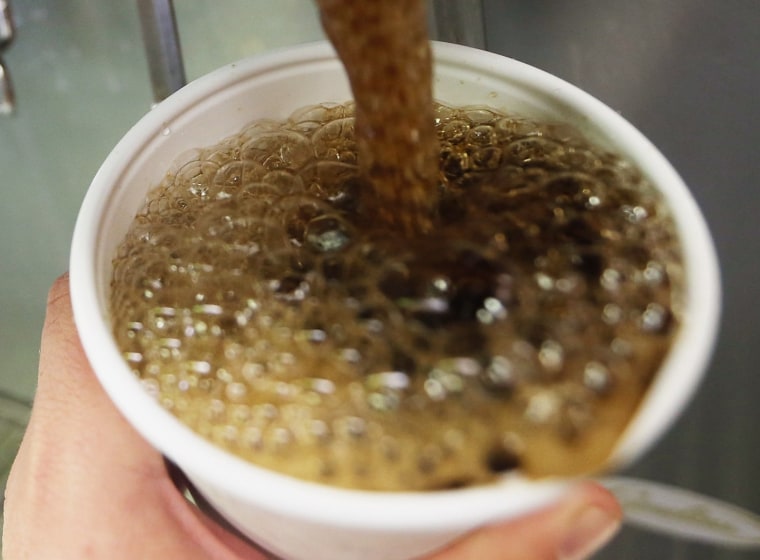After a year of campaigning, it seemed as if we knew just about every point of contention between Hillary Clinton and Bernie Sanders, but on "Meet the Press" yesterday, NBC's Chuck Todd
asked the Vermont senator about a relatively new one.
TODD: Why are you against the consumption tax -- the soda tax in Philadelphia -- that would pay for Pre-K? Universal Pre-K. Hillary Clinton's for it. SANDERS: Yes. I'll tell you why. Because it is a totally regressive tax and right now, at a time of massive income and wealth inequality, when the wealthy are getting wealthier-- many of them pay an effective tax rate lower than working people. You have large multinational corporations not paying a nickel in federal taxes. That's where you get the money. Somebody's making $20,000 a year and they buy a bottle of soda, I don't think you charge them $0.30 more for that bottle of soda.
Sanders went on to note that he endorses Clinton's goal of universal pre-K, but he opposes the proposal put forward by officials in Philadelphia to pay for the policy through a soda tax.
This wouldn't be the first proposed soda tax, but it would be the largest: under the Philadelphia plan, the city would impose a 3-cent per ounce tax -- on distributors -- on sugary drinks. There's still some question about just how much of that would be passed along to consumers, but everyone agrees the cost of soda in the city would inevitably rise as a result of the policy.
It's also very likely that the tax would, in fact, be regressive, with evidence suggesting lower-income consumers are
more likely to buy sugary drinks than higher-income consumers.
For local officials, however, it's worth pursuing a progressive goal -- universal pre-K -- even if that means adopting a regressive tax. Clinton is on board with the plan; Sanders is not.
So who's right?
Unlike some of the recent disputes, the facts alone don't necessarily tip the scales. Maybe you think it's worth a modest soda tax to pay for pre-K, while perhaps addressing childhood obesity; maybe you think any tax that hurts lower-income consumers should be rejected. It's a judgment call.
In terms of the economics, though, Paul Krugman seems to think Philadelphia is
on the right track.
[I]t does seem worth pointing out that progressivity of taxes is not the most important thing, even when your concern is inequality. Notably, Nordic countries -- very much including Denmark, which Sanders has praised as a model -- rely heavily on the VAT, which is a regressive tax; but they use that revenue to pay for a strong social safety net, which is much more important. If we add in the reality that heavy soda consumption really is destructive, with the consequences falling most heavily on low-income children, I'd say that Sanders is very much on the wrong side here.
One additional wrinkle is that Sanders has no comparable concerns about increased cigarette taxes -- which are also notoriously regressive -- because as the senator noted on "Meet the Press" yesterday, cigarettes pose a far greater public health risk. Increasing taxes on cigarette sales, for Sanders, is a net positive, no matter what the income levels of consumers might be.
Ultimately, it'll be up to Philadelphia's residents and elected officials to decide how best to proceed, but it was of interest to see anti-tax crusader Grover Norquist
celebrate Sanders' position. It's probably the first and last time these two agree on an issue.
